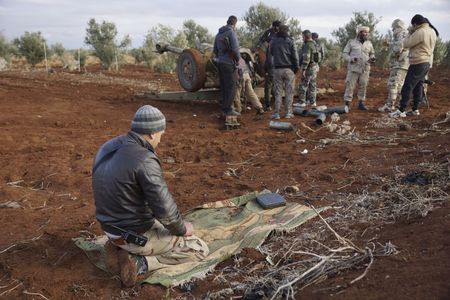
BEIRUT (Reuters) – Syrian rebels said President Bashar al-Assad’s opponents are under international pressure to make concessions that would prolong the conflict, underscoring their doubts about a new U.N.-led drive for peace talks planned to begin this month.
An opposition council that met U.N. envoy Staffan de Mistura this week was under pressure "to offer concessions that will prolong the suffering of our people and the spilling of their blood", a statement signed by prominent rebel groups said.
The opposition council of rebels and Assad’s political opponents was set up last month to oversee negotiations, which are envisaged as part of a new effort to settle the five-year-long war that has killed 250,000 people.
The rebels, including groups represented in the council, said they would not accept any concessions that run counter to "the principles of our revolution" and condemned what it called international connivance "against the revolution".
Opposition leaders told de Mistura the government must take goodwill steps before any negotiations by halting bombardments of civilian areas, lifting blockades of rebel-held areas and releasing detainees. They are waiting to hear back from him.
The diplomatic drive follows the Dec. 18 adoption of a U.N. Security Council resolution endorsing an international plan for a Syria peace process. The plan was backed by both the United States and Russia, which back opposing sides in the conflict.
It includes a nationwide ceasefire and six months of talks beginning in January between Assad’s government and the opposition on forming a unity government.
But the rebel statement underlines the opposition’s growing concern about the process, including the absence of any mention of Assad’s future – a major point of contention between countries on either side of the conflict.
De Mistura, who plans to begin the talks on January 25, arrived in Damascus on Friday.
An escalation in tensions between Saudi Arabia and Iran has compounded doubts surrounding the diplomatic initiative. Tensions have risen since Saudi Arabia executed a Shi’ite cleric, Nimr al-Nimr.
Iranian and Russian military support has been crucial to Assad, while Saudi Arabia is a main backer of the insurgents battling to topple him, including groups that signed the statement issued on Friday.
(Reporting by Tom Perry, editing by Larry King)
reuters_tickers



